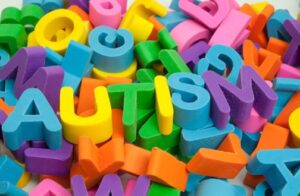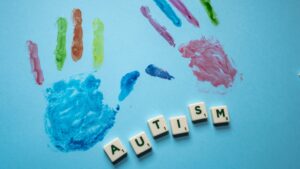
Autism Assessment in Shawnee: 30 Informative Autism-Related Facts
Autism Assessment in Shawnee: 30 Informative Autism-Related Facts
- One in every 36 children has autism spectrum disorder.
- ASD diagnoses are almost five times more common in boys than in girls. Girls with autism are frequently misdiagnosed with other illnesses and given inadequate diagnoses. Get an autism assessment in Shawnee to help with the diagnosis.
- One of the developmental disorders with the fastest rate of growth in the US is autism spectrum disorder. More children have ASD than have cancer, diabetes, and AIDS combined.
- All racial groups, nationalities, creeds, religions, and genders are affected by autism spectrum disorder. It doesn’t favor or harm any particular group.
- One crucial ability that is especially crucial for people with autism is self-advocacy. People need to be aware of their strengths and the accommodations that work best for them before they can effectively advocate for themselves. Armed with this knowledge, they can effectively represent themselves to their family, school, and community.
- A developmental disability known as autism spectrum disorder typically manifests as difficulties before the age of three and persists throughout an individual’s lifetime. Early intervention can happen with an autism assessment in Shawnee.
- Early detection, care, and assistance are important! Early diagnosis with an autism assessment in Shawnee, and treatment lead to significant improvements in many important aspects of children’s lives.
- For some children with autism spectrum disorder, early behavior-based interventions are beneficial; for other children, the effects are less significant. Early services must take into account the unique needs and learning preferences of each child. Adults with ASD require carefully tailored services.
- As of right now, there is no medical blood test for autism spectrum disorder diagnosis or treatment.
10. Autism spectrum disorder is not and cannot be caused by parents. Parental behavior before, during, and after pregnancy is known to not cause Autism Spectrum Disorder (ASD), despite the fact that the disorder’s numerous causes are unknown.
- A lot of people with autism spectrum disorder struggle to communicate. This may seem like serious difficulties with spoken language to some, and difficulties with social communication to others.

- The severity of autism spectrum disorder does not increase with age. With the correct assistance from a child psychologist in Shawnee, people with ASD can learn and acquire new skills. They will most likely get better with specialized, tailored services and opportunities for supported inclusion. Early diagnosis with an autism assessment in Shawnee can help.
- A four-year-old autistic child who is nonverbal does not necessarily mean that they will never speak. According to research, the majority will pick up word use skills, and almost half will pick up fluent speech.
- Despite their deep caring nature, children and adults diagnosed with autism spectrum disorder frequently struggle to develop typical, socially connected, and empathic behavior on their own. Even though they are unable to naturally acquire good social skills, people with ASD frequently desire to engage in social interactions.
- Families with an individual with autism spectrum disorder typically spend $60,000 annually on their support. Early diagnosis and intervention can cut the cost of lifelong care by two thirds. A recent study found that the average lifetime costs of autism range from $1.4 million to $2.4 million.
- Allergies, asthma, epilepsy, digestive problems, feeding disorders, sleep disorders, sensory integration dysfunction, cognitive impairments, and other medical disorders are frequently co-occurring medical conditions in individuals with autism spectrum disorder.
- Compared to their peers, autistic children and teens frequently have reduced bone density.
- Seizures can affect as many as one-third of those with autism spectrum disorder; the prevalence of seizures in ASD patients is ten times greater than in the general population.
19. One additional genetic, neurological, or metabolic disorder is present in about 10% of individuals with autism spectrum disorder.
- People with autism spectrum disorder (ASD) are distinct individuals who vary from one another in the same way that all people do. With ASD, both adults and children can communicate and engage with others. They might look you in the eye well. It is possible for them to be non-verbal. They might have cognitive impairments and need to see a child psychologist in Shawnee, be extremely intelligent, or have average intelligence.

- Hyperlexia—the capacity to read at a level higher than one’s age or academic grade—is frequently associated with autism spectrum disorder.
- People who have autism spectrum disorder may be highly creative and easily develop a passion and talent for dance, singing, theater, music, and other creative endeavors.
- Compared to typical children, autistic children have a 160-fold increased risk of drowning. As a result, it’s critical that they learn to swim and that parents watch their kids near water.
- Researchers and medical professionals speculate that because male and female symptoms of autism spectrum disorder may differ, many female cases of the disorder are diagnosed later than male cases. Research on females with autism spectrum disorder is often lacking.
- It has been discovered that there are gender differences in symptoms related to social understanding, social communication, and social imagination.
- In the US, about 50,000 people with autism spectrum disorder will graduate from high school each year. After high school, many legally mandated services come to an abrupt stop, leaving young adults without adequate support.
- After graduating from high school, 35% of adults with autism spectrum disorder have neither held a job nor pursued further education.
- Businesses are realizing that having a workforce that is neurodiverse is essential to success. Employers who seek out, hold onto, and support neurodiverse staff members have a competitive edge in a number of areas, including innovation, productivity, culture, and talent retention.
- Providing adult individuals with an autism assessment in Shawnee can help with supportive services. It is not mandated by federal law. Many families are left to handle getting a child psychologist in Shawnee on their own as a result.
- Numerous individuals with autism spectrum disorder are effectively living, working, and improving the lives of others in their communities. The likelihood of this occurring is higher when the child receives autism assessment in Shawnee and services through a child psychologist in Shawnee throughout their school years.
Need to hear from someone who has worked with Dr. Tish?
This Google 5 Star review from Amy W. says it all,
“Dr. Taylor has made a tremendous amount of impact on our family. She has a thoughtful approach and endless techniques to help children learn how to cope and navigate through their thoughts and feelings. She has given encouragement and peace of mind. She is truly a lifesaver.”
If you are struggling to find the right support for your child, contact me, Dr. Tish Taylor, Ph.D. I am a licensed child psychologist who specializes in Shawnee ADHD testing. My experience working in and with schools makes me a valuable resource for parents. I have a wide range of experience with diagnoses, including ADHD, dyslexia, executive functioning deficits, anxiety, mood, and behavior problems. I also do autism assessment in Shawnee if that is where your concerns lie.
I utilize the latest research to create intervention methods to give your child and your family the support they need, including learning disability evaluations in Shawnee.
You can reach me at (913) 738-4177 or visit my website to learn more about the services I offer. You can also get in touch with me by filling out this contact form. I look forward to assisting you.
You can also receive guidance through my books focused on Fostering Connection and Parenting with ADHD. Click here to find out more about these publications and how they can be a major benefit to you and your child. I also offer webinars focused on developing an intervention plan and how to get through to a child that struggles with listening. You can learn more about these two helpful classes by clicking here.

